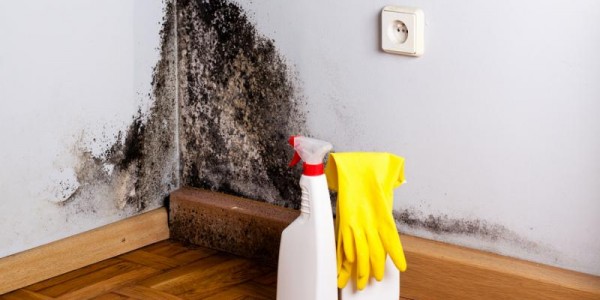By: Robert B. George, Esquire
If you own or manage a rental property in Pennsylvania, a mold problem could present you with costly cleanup and repair bills as well as lawsuits from tenants claiming that the mold made them ill. Accordingly, every landlord should take mold seriously
In recent years, medical science has impressed upon lawmakers the dangers of breathing mold spores and the illnesses that can result from such exposure. As a result, laws now protect tenants from mold in rental properties. Mold is a fungus that grows in moist climates, like bathrooms, basements or where water has seeped behind walls. It is sometimes visible, but you may not realize it is growing under your floorboards, in the ceiling or behind the shower. Most concerning is what is commonly known as “black mold”, which can be toxic, especially to those with sensitivities or those with delicate systems like the elderly or children. A top environmental hazard, mold thrives in warm, damp places, and often grows quickly in basements, attics, and other parts of buildings with poor ventilation and humidity problems.
Pennsylvania doesn’t have any laws that specifically address a landlord’s duties or liability when it comes to mold prevention and remediation. However, courts in Pennsylvania have recognized two common legal self-help strategies that tenants may choose to pursue following a mold outbreak in their apartment, or other rental property. The first, known as “rent withholding,” allows a tenant to stop paying rent on the basis that the mold has made their apartment uninhabitable. Regardless of what may appear in a written lease between the landlord and a tenant, landlords in Pennsylvania are, nevertheless, bound by the what is known as the “implied warranty of habitability,” which is a legal doctrine that requires that tenants be provided with apartments that are in a livable or habitable condition. The second strategy, known as “repair and deduct,” permits a tenant to undertake the mold removal on their own, and then subtract the cost from their rent.
Importantly, tenants who believe they have been harmed by the presence of mold in their apartment can attempt to recover damages from their landlord in court to compensate them for their loss. If a judge or jury agrees that the landlord negligently created a mold problem or allowed one to continue within the rental property, the landlord could be found liable for any harm, and held accountable to the tenant for money damages. Interestingly, however, Pennsylvania does not currently have any specific statutes or regulations that require landlords to disclose high concentrations of mold in rental properties to prospective tenants.
As a landlord, if you believe a departing tenant caused a mold problem in the rental property, you may want to consider deducting the cost of cleaning from the tenant’s security deposit, which is permitted under the applicable landlord-tenant laws in Pennsylvania, so long as you provide the tenant with a written explanation of the mold related damages and costs within 30 days of the tenant’s lease termination. Even if a tenant’s actions are believed to have resulted in a mold issue, the law holds the landlord responsible for its removal and remediation, and waiting for tenants to pay before taking care of the problem is not a recommended strategy, because the longer you wait, the more the mold grows, and the greater the underlying mold issues and related problems become.
If you find yourself involved in a matter involving mold related issues, whether you are a landlord or a tenant, it is important that you consult with an attorney that has experience with such matters. Contact Robert B. George, Esquire at 610-565-5700, or send him an e-mail at [email protected].
The Law Firm of DiOrio & Sereni, LLP is a full-service law firm in Media, Delaware County, Pennsylvania. We strive to help people, businesses and institutions throughout Southeastern Pennsylvania solve legal problems – and even prevent legal problems before they occur. To learn more about the full range of our specific practice areas, please visit www.dioriosereni.com or contact Robert B. George, Esquire at 610-565-5700 or at [email protected].
Like what you see? Join our mailing list













